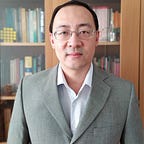Consciousness, Penrose and Quantum Computers
This link has an interview with the great Professor Scott Aaronson, about several topics in Quantum physics.
One interesting topic concerns Roger Penrose, who recently won the Nobel Prize in Physics for studying black holes.
In addition to black holes, another line of research by Penrose concerns consciousness and intelligence.
Penrose’s argument is more or less simple. A computer can only do “computable” calculations, in the sense of Turing-Church.
For example, the current computer can not abstract, prove where its own computational limitation is.
The human being is capable of reaching unconputable conclusions. Godel’s theorems are an example: they show that any algebraic system will always contain contradictions.
Penrose’s provocation is good, but the conclusion is controversial: therefore, the brain has some quantum component, different from ordinary computers, that allows this superior processing. This issue is, and will be, the subject of heated debates for decades.
That’s where Aaronson’s comment comes in. He says that quantum computers under study today can be simulated by a classic computer, unless a time factor.
So, to be able to do what Penrose says, computers would have to resort to an even more powerful theory: gravitational quantum computers.
For many decades, physicists have tried to unify the physics of the very small (quantum) and the physics of the very large (gravitation), which would be such gravitational quantum physics.
Well, if we are far from a “normal” quantum computer, we are very, very far from a “gravitational” quantum computer.
Technical ideas with a bit of philosophy
Join the Quantum Computing study group:
